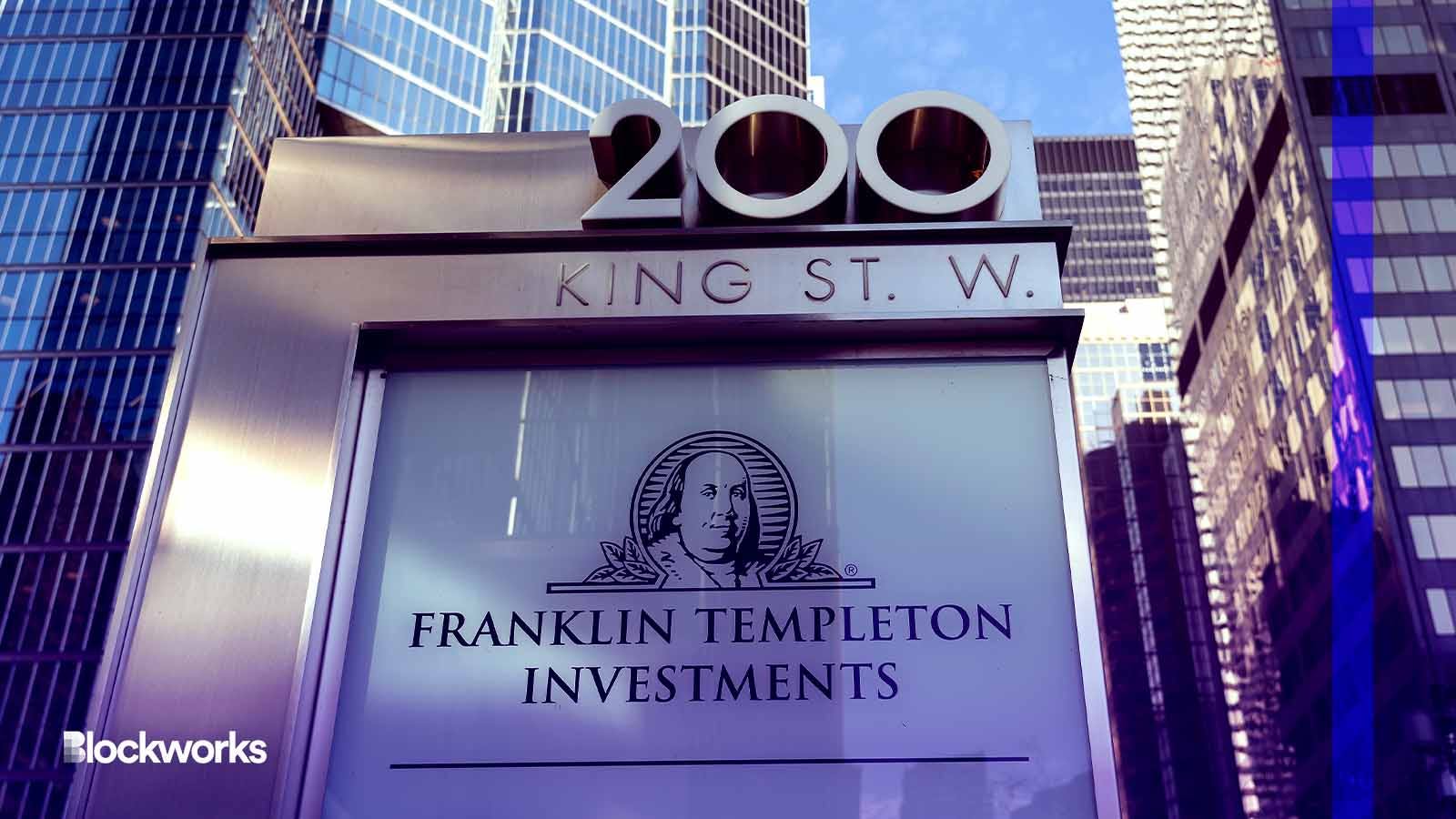A stablecoin with yield? Tokenized fund perhaps just the start for fund giant
Company’s tokenized money market fund a complementary product to stablecoins “at a minimum,” executive says

JHVEPhoto/Shutterstock modified by Blockworks
In 2021, Franklin Templeton introduced a money market fund that used a public blockchain to record transactions. This marked the beginning of the financial institution’s exploration of cryptocurrency’s underlying technology.
Roger Bayston, head of digital assets at Franklin Templeton, told Blockworks the company is working with the SEC to unlock “a rich set of features” that blockchain tech enables for mutual funds, including efficiency gains and, in turn, potential lower fees.
Going forward, such funds could be used alongside stablecoins, or even an alternative to them, he added.
“The learnings we are having by just doing [research and development] activity inside of blockchain and assembling development technology resources, gives us confidence that the blockchain seems to enable and probably refresh the ‘40 Act mutual fund and create continued relevance for it as an investment tool.”
A ‘refresh’ to the mutual fund
The $1.4 trillion asset manager’s OnChain U.S. Government Money Fund, which trades on the Nasdaq under the ticker (FOBXX), had more than $290 million in assets under management as of May 31.
It began using the Stellar blockchain for its record-keeping two years ago — allowing the transaction activity to be publicly viewable. Shareholders’ private information remains kept in a separate secure database.
Franklin Templeton revealed in April the fund would be supported on the Polygon blockchain as well.
“Whether it’s Polygon now…or even other new layer-1s that are developing, this is all part of the future journey,” Bayston said.
The fund invests more than 99% of its assets in US government securities, cash and repurchase agreements collateralized by such assets. It also tries to maintain a stable $1 share price.
One share of the fund is represented by one BENJI token, and token holders can access the fund in digital wallets through the Benji Investments app. Franklin Templeton does know-your-customer (KYC) and anti-money laundering (AML) checks while onboarding users.
Though BENJI is not a stablecoin, Bayston explained, its regulatory construct — which seeks to keep its net asset value stable — allows it to act as one while also generating income.
“Investors are waking up to the opportunity that there’s probably, on a forward basis, going to be an array of on- and off-ramps for you to be able to utilize in and out of digital assets,” he said.
“If a money fund continues to offer attractive yield, we would expect investors to continue to find it as, at a minimum, a complementary product as they use currency stablecoins, which do not offer income.”
Blockchain tech to be ‘transformational’ in other ways
Blockchain technology is set to be “transformational” for other capital markets going forward, Bayston said.
Bayston, who began working at Franklin Templeton, noted his deep familiarity in mortgage-backed securities, which comprise a collection of home loans and other real estate debt.
While NFTs are often thought of as digital art, Bayston said, each individual loan issued in the economy could be an NFT.
“I would question whether this Wall Street machine of securitization isn’t somehow transformed by blockchain, because through smart contracts I don’t have to pool a whole bunch of loans and then apply that cash flow structure,” Bayston added during a panel at the DACFP Vision conference Tuesday. “I can do that right at the loan level.”
Bayston’s comments come after Mike Muir, Franklin Templeton’s head of digital assets technology, told Blockworks last December the firm was exploring NFT use cases. The company issued NFTs to attendees of its first Innovation Forum held in September.
Traditional finance players have expressed that they understand the potential of tokenization.
WisdomTree is getting set to debut “blockchain-enabled funds” that utilize the Stellar blockchain on its upcoming financial app. Private markets investment firm Hamilton Lane first revealed last year it would be tokenizing several of its funds using Polygon and potentially other public chains.
BlackRock CEO Larry Fink said in a letter to investors in March that the tokenization of assets could offer various opportunities, including “driving efficiencies in capital markets, shortening value chains, and improving cost and access for investors.”
Get the news in your inbox. Explore Blockworks newsletters:
- The Breakdown: Decoding crypto and the markets. Daily.
- 0xResearch: Alpha in your inbox. Think like an analyst.






